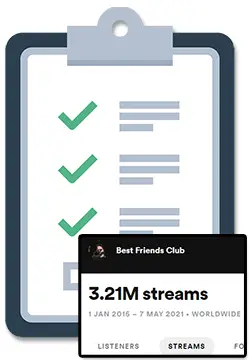For musicians, understanding how time is spent is crucial in managing a successful career. A time audit can provide valuable insights into your daily routines and help identify areas for improvement. Here’s how to conduct a time audit and understand where your time goes.
1. What is a Time Audit? A time audit involves tracking everything you do in a day or week, recording each activity and its duration. This process helps in identifying how much time is spent on various tasks, including music-related activities and other responsibilities.
2. Getting Started with Time Tracking Choose a week to start tracking your time. Use a digital tool, like a time tracking app, or simply a notebook. Record all activities, no matter how small, and how long they take.
3. Categorize Your Activities After the tracking period, categorize your activities. Common categories for musicians might include practice, composition, recording, marketing, networking, administrative tasks, leisure, and personal responsibilities.
4. Analyze the Results Look at how your time was distributed among these categories. Are you spending enough time on activities that directly contribute to your music goals? Are there areas where you’re spending more time than necessary?
5. Identify Time Wasters A time audit often reveals time wasters – activities that consume time but don’t significantly contribute to your goals. This could include excessive social media use, unproductive multitasking, or inefficient work processes.
6. Evaluate Your Practice Efficiency As a musician, practice is vital. Assess whether your practice sessions are efficient and productive. Are you focused during practice, or are there distractions that reduce effectiveness?
7. Assess Balance Between Music and Other Activities Check if there’s a balance between music-related activities and other aspects of your life. While music is important, neglecting personal health, relationships, or rest can be detrimental in the long run.
8. Plan for Improvement Based on your audit, plan how to better allocate your time. Set specific goals for each category and consider strategies to reduce time wasters.
9. Implement Changes and Monitor Progress Make the necessary changes in your schedule and monitor your progress. Are the changes helping you spend more time on important activities?
10. Regularly Repeat the Audit Conducting time audits regularly, like every few months, helps in keeping track of your time management progress and making ongoing adjustments.
In conclusion, a time audit is a powerful tool for musicians to gain clarity on how they spend their time. By understanding where your time goes, you can make informed decisions to optimize your schedule, focus on your music career effectively, and maintain a healthy balance in your life.




